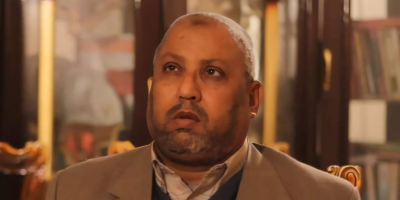The last quarter of 2022 was replete with human rights violations committed by the Egyptian authorities. The abuses occurred in conjunction with the calls for demonstrations on November 11 against the deteriorating economic conditions in the country as well as with the holding of the Cop27 Climate Summit in the Sharm El-Sheikh which put Egypt’s human rights situation at the center of global public opinion.
The Committee for Justice issued its fourth quarterly report (October – December 2022),as part of the Detention Watch project. The report documented 2,238 violations, most of which were cases of arbitrary deprivation of liberty (2,000), followed by enforced disappearance (119), and 89 cases of poor conditions of detention, including deliberate denial of health care, 18 incidents of torture, and 12 deaths inside detention facilities.
Deteriorating economic conditions and climate crisis:
The report said that the deteriorating economic conditions were the trigger for the call for the 11/11 demonstrations, which contributed to increasing the number of violations during that period. Many took to social media to express their anger, which prompted a crackdown on citizens by seizing their phones to search them for any signs of opposition.
The authorities were on high alert due to the holding of the United Nations Climate Summit COP27 in Sharm El-Sheikh, Egypt, from 7 to 22 November. Prior to the summit, a group of independent UN experts demanded the Egyptian government to safeguard the participation and safety of all civil society, especially climate activists.
At the end of the year, various professional unions also protested against the implementation of the electronic bill system. The unions of engineers, lawyers, and dentists issued various statements expressing their rejection of the electronic bill approved by the Ministry of Finance, which adds financial burdens to union members.
European action against violations in Egypt:
CFJ stated that the last quarter of 2022 witnessed European action against human rights violations in Egypt. The European Parliament adopted a resolution calling on authorities to release the detained activist Alaa Abdel-Fattah, who was on hunger strike at the time, and all the victims of arbitrary detention. After the end of the Climate Summit, the European Parliament held a debate on the human rights situation in Egypt. It resulted in a collective decision to renew the call for European Union countries to impose sanctions on those responsible for acts of violent repression in Egypt, in addition to calling for a review of the Union’s relations with Egypt in light of the very limited progress in its human rights record and the continued prosecution of the opposition.
Analysis of violations:
CFJ also indicated that in terms of the timescale of violations, the largest percentage occurred in November 2022, when approximately 43 percent of the total documented violations occurred, with a rate of 964 violations, followed by the month of October, in which about 39 percent of the same total (877 violations) occurred, against the backdrop of the beginning of the call for demonstrations and the move to liberalize the currency exchange rate.
The report covered 14 Egyptian governorates. The highest number of violations took place in Cairo (1,671). Among them were 1,570 cases of arbitrary deprivation of liberty, 49 enforced disappearances, 38 cases of poor conditions of detention, and 8 deaths inside detention facilities. In addition to having the largest population, Cairo is also home to a number of prison complexes, being the capital, which explains the high number of cases relative to other governorates.
According to the professions of the victims, technical workers suffered the highest number (24), followed by medical professionals (16), then engineers (15). The share of middle-aged victims (35-59 years) was also the highest among the documented violations, with 133 cases. The report noted that 3 minors (-18 years) were victims of arbitrary deprivation of liberty.
Male victims represented approximately 97 percent of the total documented violations (2180/2238), while females were subjected to 58 violations, including 47 cases of arbitrary deprivation of liberty, 6 cases of poor conditions of detention, and 5 enforced disappearances. In terms of the legal position of the victims, approximately 78 percent of the total were in pre-trial detention (1752), followed by the released victims whose release procedures were completed (268).
The report also presents in detail cases of victims of enforced disappearance, torture, denial of health care, and poor conditions of detention, as well as what happened with Egyptian Nubians who were sentenced by the Saudi authorities to unfair prison sentences, and were subjected to severe violations during their detention and trial.
CFJ’s efforts to lift injustice:
The report also referred to the efforts made by the UN communication team during the reporting period. The team submitted 9 complaints and correspondence regarding victims and developments in the human rights situation in Egypt to several UN bodies and teams, including: the Working Group on Arbitrary Detention and the Working Group on Enforced Disappearance, which resulted in the UN Working Group on Arbitrary Detention adopting an opinion on the detention of Omar Abdel-Aziz Mohamed Abdel-Aziz, Khaled Mohamed Abdel-Raouf, Hossam Abdel-Razek Abdel-Salam Khalil, and Mohamed Abdel-Aziz Faraj Ali.
Report recommendations:
At the end of its report, CFJ recommended the immediate release of all victims of arbitrary detention held against the backdrop of calls for demonstrations on 11/11, and all prisoners of conscience.
It also called on Egyptian authorities to review the conditions of the detainees, especially in the Correction and Rehabilitation Center in Badr City, to improve the poor conditions related to their detention, to ensure fair trials for them and safety for their lawyers, to revitalize the work of the Presidential Pardon Committee, to define its powers, to raise the numbers of those released and to expand its scope of work.
The organization also called for the opening of a serious investigation into the crimes of torture, enforced disappearance and deliberate denial of health care against the victims whose conditions were documented in the report, which took place in official and unofficial detention facilities, and to track down the perpetrators and prevent impunity, in addition to activating the role of the Public Prosecution’s oversight over all detention facilities in Egypt to avoid the occurrence of such crimes again .
The organization also stressed the need for urgent external intervention in the case of the Nubian people in Saudi Arabia, to hold a fair retrial for them and to respond to the calls of their families.





